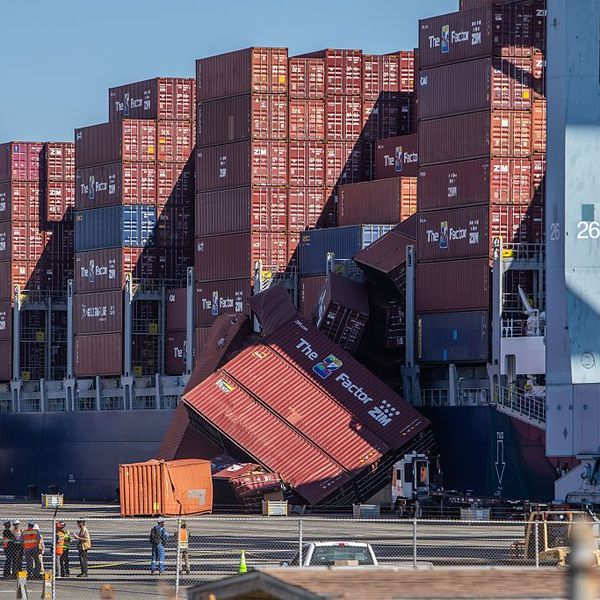U.S. President Barack Obama's recent visit to Canada, against the backdrop of Brexit and the U.S. presidential campaign, had many opinion leaders trying to dismiss concerns about free trade.
Now, we're told, people who are against free trade are isolationists who want to entrench themselves in the past, in a parochial nostalgia for the nation-state. The ideology of free trade opponents can only lead to an inward-looking mentality that fosters wars and destroys the economy.
So say the free traders who have been fostering wars and destroying the economy.
But is it that easy: a fight between free trade, on the one hand, and isolationism on the other?
This false binary construct leaves little room for a third choice: the progressive concept of "fair trade" and the aspiration to build economies and trading relationships that are based on social and ecological justice, on the primacy of democratic rights over the profits of transnational corporations, and on the free movement of people rather than capital.
Free trade is a fundamental tenet -- along with privatization, deregulation and austerity -- of the agenda that is driving deepening inequality around the world.
The "investment protection" clauses in free trade agreements are what allow transnational corporations to directly sue national governments that pass laws against fracking, pipelines and other climate crimes. These provisions also trample on indigenous rights and their ability to say no to major resource extraction projects. And it's the "intellectual property rights" in free trade agreements that allow highly profitable pharmaceutical corporations to secure the delay of cheaper generic and biosimilar drugs at the expense of human lives.
It is inexcusable for some politicians and newspapers to use the demagoguery of Donald Trump and the bigotry of Nigel Farage -- who led the Brexit campaign for the United Kingdom to leave the European Union -- to obscure this valid progressive critique of the power free trade agreements give to transnational corporations and how those powers undermine our rights.
Opposition to the Trans-Pacific Partnership (TPP), the Canada-European Union Comprehensive Economic and Trade Agreement (CETA), the North American Free Trade Agreement (NAFTA) and other agreements is not "anti-trade." It is a rejection of "free trade" and the powers these deals bestow on transnational corporations over our democratic and human rights. This rejection of these destructive trade deals is part of a positive vision of "fair trade."
Far from antiquated, this sentiment is on the rise, highlighted by the recent Angus Reid Institute poll that showed only one in four Canadians support NAFTA.
This isn't about trying to return to some imaginary past before global trade, with white picket fences and no immigrants where "foreign ideas" are rejected. This is about shaping globalization in a way in which our cosmopolitanism and openness to the world is not shaped by corporate interests but by democratic impulses.
And while the votes for Brexit, and the support for Trump, may not always choose the best political framing, politicians and elites would be arrogant to dismiss the widespread discontent with the status quo.
We must reject the attempts to stoke racism as a way of misdirecting blame away from proponents of business as usual. It's not immigrants, refugees or racialized communities that have caused the sharp rise in economic inequality. The blame rests squarely with cuts to public services, privatization and the fallout of so-called free trade deals that have cost hundreds of thousands of jobs.
There is a massive wound in our economy. Free trade agreements in their current form are not going to fix it since they are a central part of the problem. There needs to be a massive shift in the way trade agreements are conceived and implemented so that the benefits of global trade are shared by all.


